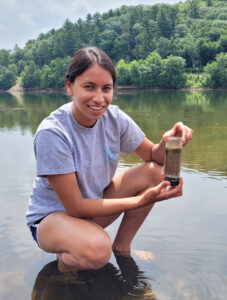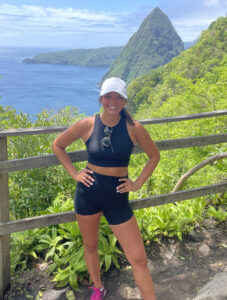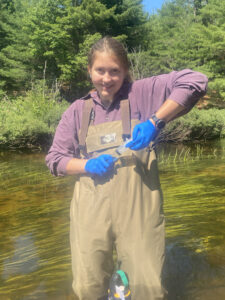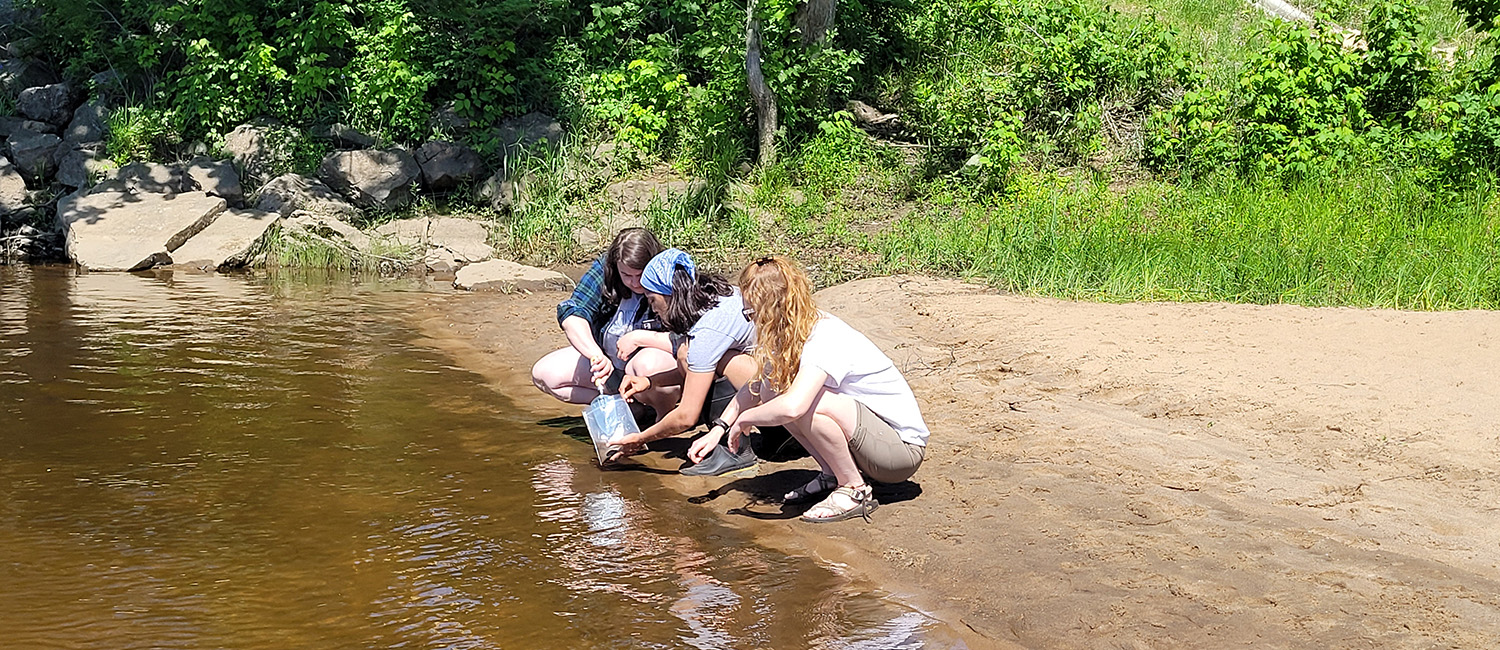What happened when nine undergraduate students from universities across the country convened at UW-Madison for a summer research program? A lot of outstanding freshwater research, mentorship, networking and fun.
The student internships were part of a pilot program of the Freshwater Collaborative of Wisconsin Summer Research Experience Program (SREP) for undergraduates. Each student was paired with a faculty member and graduate student mentors to work on a pressing water issue, such as algal blooms, sustainable aquaculture, per- and polyfluoroalkyl substances (PFAS) or groundwater contamination. Students also had opportunities for professional development and cultural enrichment.
“The program provided immersive student research experiences to build workforce development skills and also to let undergraduates work with research groups and possibly consider the option of pursuing graduate studies in Wisconsin,” says James Hurley, director of the UW Aquatic Sciences Center and lead faculty member for SREP.
SREP internships were offered through a partnership between the Freshwater Collaborative, Wisconsin Sea Grant and the University of Wisconsin Water Resources Institutes. UW-Madison leveraged the existing infrastructure of its Summer Research Opportunity Program for graduate students to launch SREP. One of the goals is to create a centralized system for recruiting and placing undergraduates throughout UW System.
“We learned a ton this summer about how to make this all work better in the future,” Hurley says. “Our plan is to extend the program in summer 2023 to all UW System campuses for both hosting and sending students through the Freshwater Collaborative.”

For Manasi Passi Simhan, a UW-Madison biology and environmental studies double major, the program provided a confidence boost. She had worked in a lab during the school year but felt she lacked hands-on fieldwork. Working in Eric Roden’s geosciences lab, Simhan spent a lot of time in the field, collecting and analyzing river sediment samples.
“Two key skills I have learned through this program are independence in the lab and resourcefulness when following a procedure,” she says. “Over the last eight weeks, I’ve definitely gained confidence with the help of my mentors.”
Her mentors also helped her identify future career paths. Simhan has been interested in both environmental and medical research but was struggling to find a way to connect the two subjects.
“Working alongside two wonderful graduate student mentors has given me a better understanding of what I really want to do with my research,” she says. “I hope to continue my studies in graduate school and to work in a research field at the intersection of environment and medicine in the future.”
Others also indicated that their graduate student mentors played a significant role in their summer experience.

“I was able to talk with my graduate mentor not only about the research I completed this summer but also about topics such as applying to grad school and pursuing a PhD,” says Elisabeth Bautista, who is double majoring in conservation biology and global health with a certificate in sustainability.
She plans to work in marine research and rehabilitation, and participating in SERP built upon her prior research experience in Belize. Bautista’s summer research into aquaculture/aquaponics allowed her to develop new lab skills and learn how to communicate with those without a scientific background. She also appreciated the career and networking opportunities.
“I was able to go on a First Nations cultural tour and talk with professionals from the EPA (U.S. Environmental Protection Agency) and USGS (U.S. Geological Survey) about obtaining careers in this field,” says Bautista, who will continue her undergraduate research in the Hicks Research Lab at UW-Madison in fall.
Many of the students noted that one of the most significant skills they learned was how to be creative and flexible when approaching a scientific problem.

“Both in the laboratory and in the field, things will go wrong and there are factors that can’t be controlled,” Lily Wagner, a UW-Madison undergraduate. “I learned a lot about finding creative ways to problem solve when aspects of an experiment are not working correctly.”
Wagner’s research focused on the environmental fate of an aquatic pesticide used to control the invasive sea lamprey population. Her internship helped her to realize that she wants to conduct fieldwork in her future research career in environmental conservation.
“The laboratory and field skills I learned in this project will definitely help me as I do research in the future,” she says.

